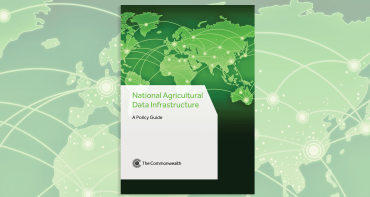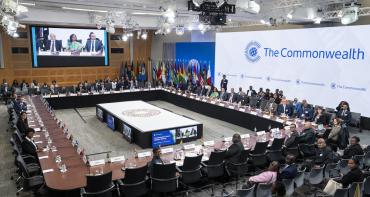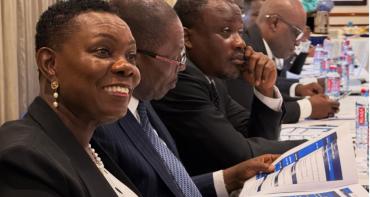Senior government officials from 46 Commonwealth countries and three regional organisations met in London from 6 to 8 July 2011 to discuss and agree to steps that need to be taken to sharpen and improve the delivery of the Commonwealth Secretariat’s development assistance.
The officials, known as Primary Contact Points (PCPs), who act as focal points at a national level for the implementation of Commonwealth Secretariat technical and development assistance work, spoke highly and positively about the impact of the assistance they receive from the Association through the Commonwealth Fund for Technical Cooperation (CTFC).
The representatives reiterated the value they place on the CFTC’s assistance which is of particular significance to its 32 small states and the least developed countries (LDCs). They highlighted a number of the Commonwealth Secretariat’s key strengths, including its accessibility, credibility and valuable assistance as a trusted partner.
“Commonwealth technical assistance suits the unique development and capacity needs of small states and vulnerable members. The flexibility, easy and quick access, reception of response to requests and sensibility to our unique vulnerabilities is unprecedented and unmatched,” said Ms Hilary Hazel, an official from St Kitts and Nevis, a small island state in the Caribbean.
Another participant, Mr Ronald Bugingo from Rwanda, said: “We have only been in the Commonwealth for about two years, but already we are seeing value of our membership. From this meeting, I have heard the various opportunities my country can tap into to share experiences and seek support.”
While Mr Muhammad Alkama Siddiqui from Bangladesh said: “Commonwealth technical assistance addresses niche gaps, is relevant and is offered with no strings attached, no conditions and fewer formalities.”
Such remarks were echoed by other officials from across the Commonwealth.
They also welcomed the Secretariat’s efforts to consolidate Result Based Management or RBM, an approach aimed at ensuring that the organisation’s work delivers practical and measurable results that contribute to poverty eradication, good governance and democracy.
“Given the Secretariat’s relatively modest budget, we recognise the need to continue to focus our efforts, make use of our comparative advantages, and leverage on partnerships when delivering our programme of development assistance,” said Ransford Smith, Commonwealth Deputy Secretary-General.
During the three day meeting, new mechanisms for improving communication and information sharing between the Commonwealth Secretariat with, and among the focal points in member states were showcased. These included the launch of a dedicated extranet—a web based platform which will enable member countries as well as their London-based High Commissions to communicate and co-ordinate more effectively with the Secretariat on issues related to the CFTC-funded programme of assistance.
Another feature for improving coordination and communication-- the refreshed Primary Contact Point/Point of Contact system as well as the launch of the pilot Technical Cooperation Frameworks (TCFs)—were presented and well received.
The TCFs are expected to further guide the provision of CFTC-funded technical assistance to member countries in line with their national development priorities.
In addition, the Commonwealth Connects, a portal which is being designed to help member countries share their knowledge and best practices on a variety of issues, was welcomed by participants.
The Meeting also benefited from a discussion on South-South Cooperation—a process in which developing countries share and support each other through the sharing of best practices, technical expertise, and resource mobilisation. This is a key and highly valued principle that drives the work of the CFTC.
Participants, while commending the Secretariat’s work, reiterated the need for it to continue sharpening and strengthening the balance between flexibility and focus.
In an innovative segment of the meeting, participants engaged in a Development Dialogue during which key Commonwealth flagship projects such as those on trade capacity building, natural resource management and ocean governance were discussed in a wider development context.
“We are committed to considering the valuable feedback we have received from this meeting to ensure that our work continues to be cutting edge and delivering value to our member states,” Mr Smith concluded.



